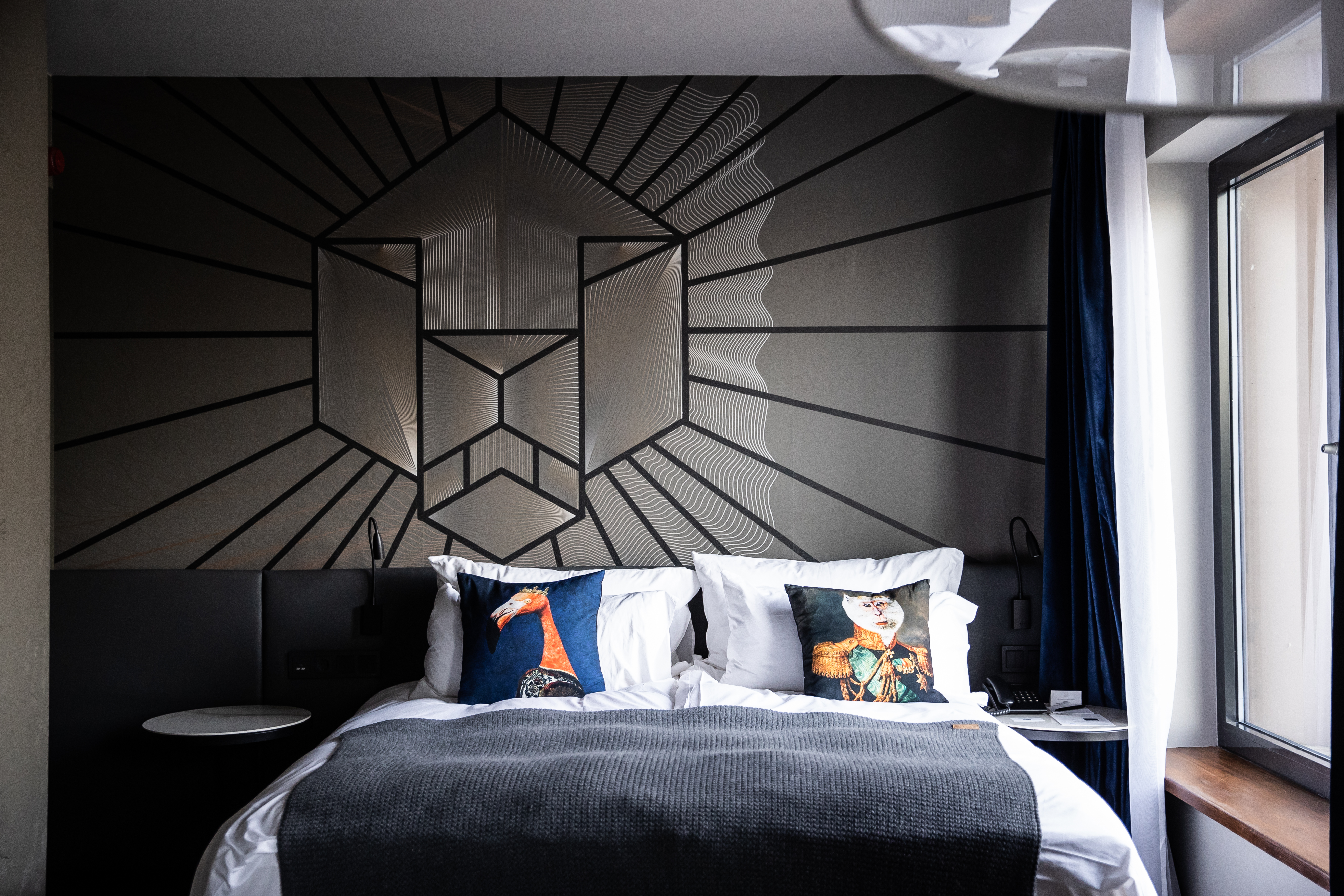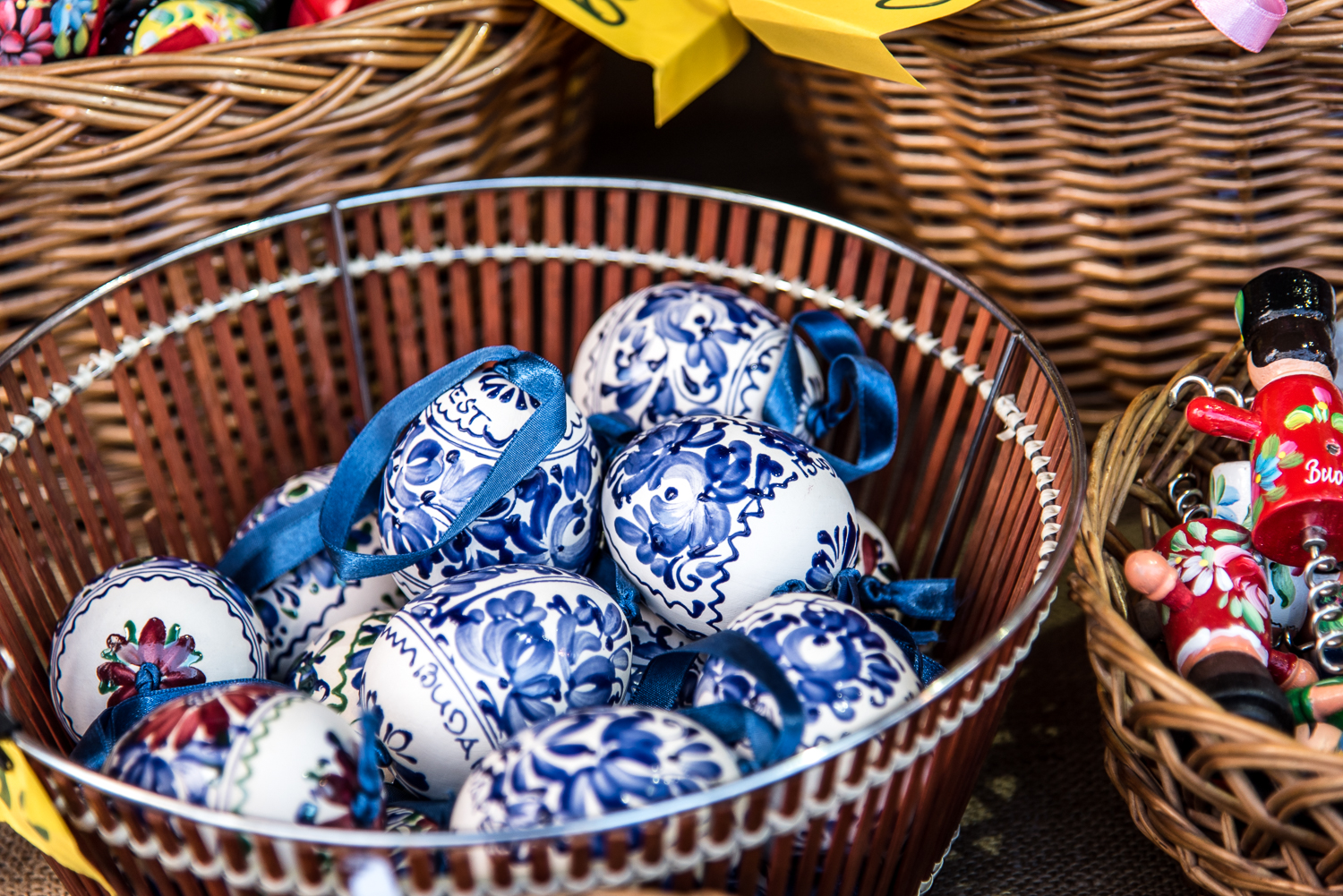Until 2016, when the calvary ended and the construction of the unusually shaped Hotel Clark Budapest, one of the next generation of hotels in the capital, began. Discreet, comfortable, reliable – just like an elegant butler.
Guest Experience
We Love
Budapest’s Guest Experience
series profiles Budapest hotels that invite
our staff to visit at no charge, but
with the understanding that we may
include negative impressions in our coverage. Hotel
management is not allowed to review these articles before they are posted.
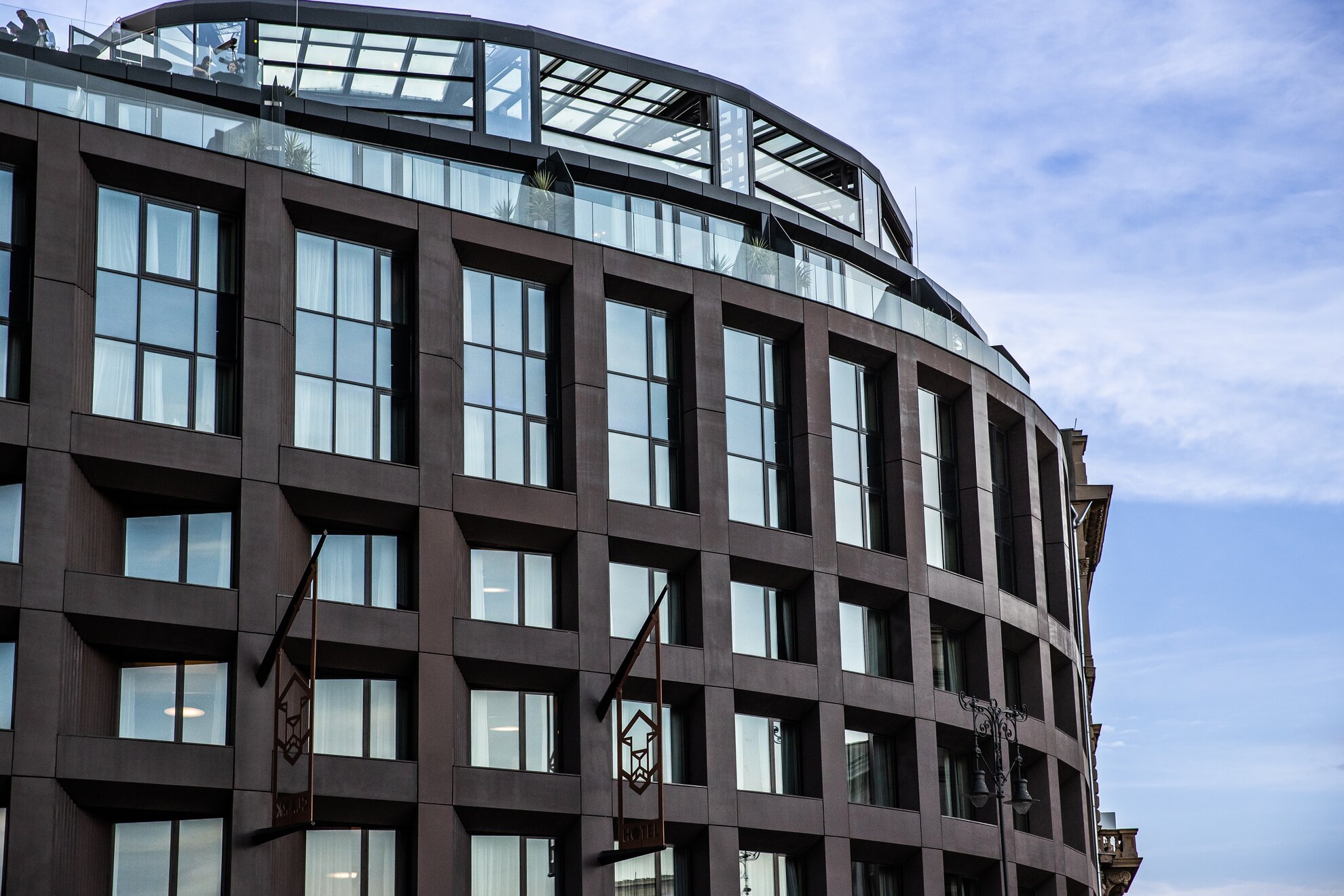
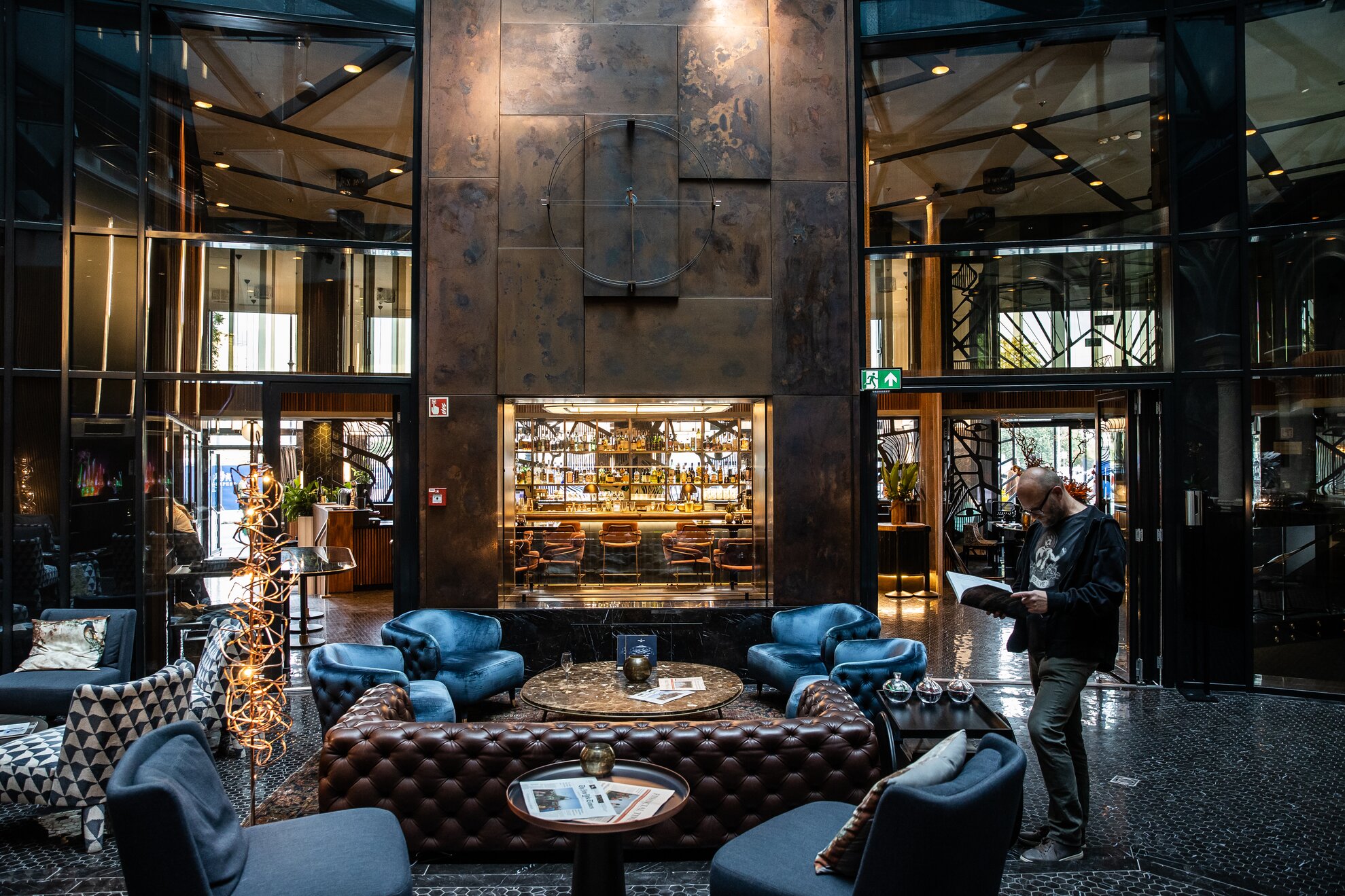
Boutique hotel on one of the city’s most valuable empty building plots
Compared to the classic large hotels, Hotel Clark Budapest is not part of a global hotel chain but stands alone and is not even a classic one, but a so-called boutique hotel. We often hear this term, yet few people know exactly what it means. The general feature of boutique hotels is that they are modern, smaller in size and therefore guests can have more personal contact with the staff, and they all have a very specific and unique style, in which the furnishings play a huge role.
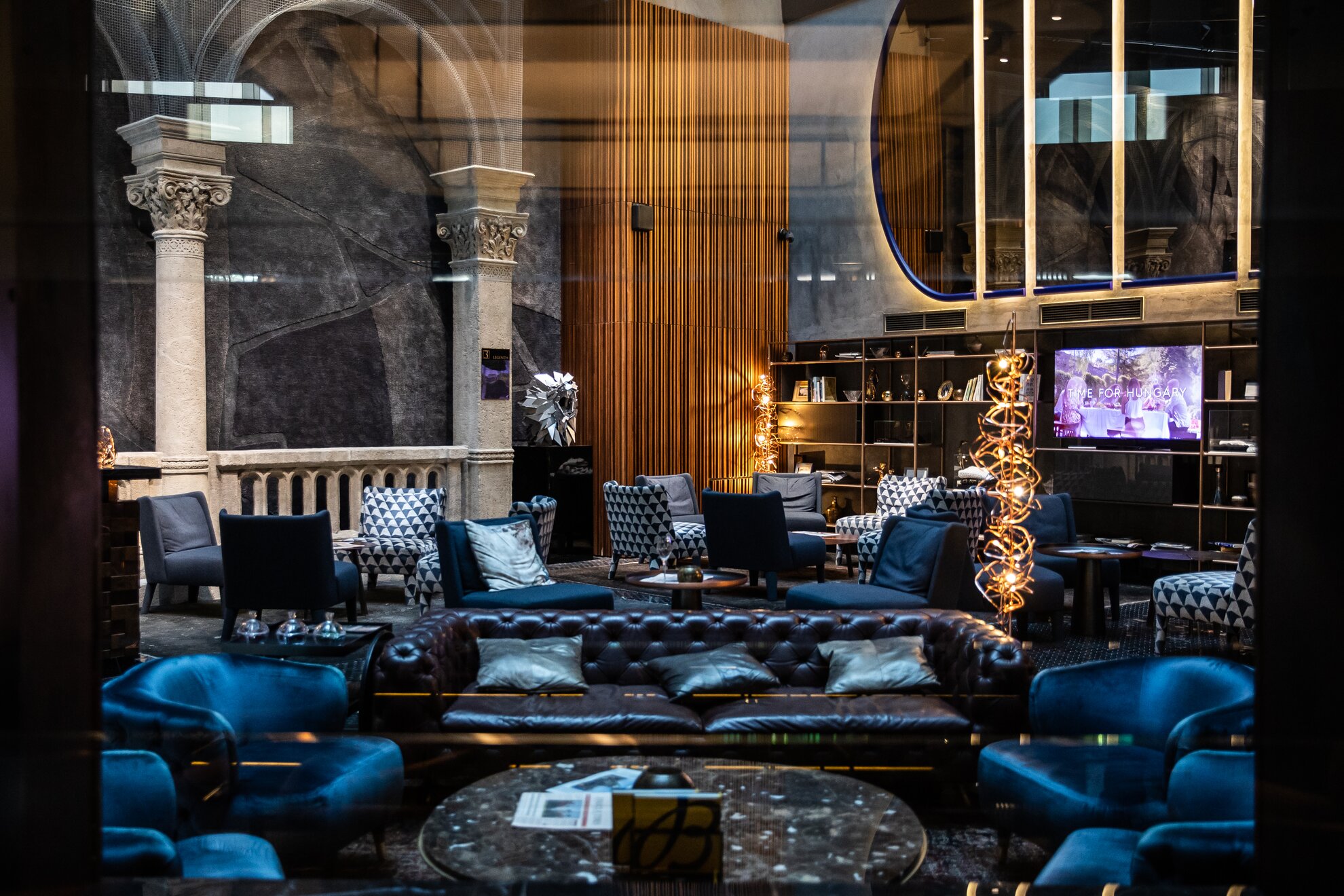
It's a bit like sleeping in a design studio showroom rather than a hotel room. Unique solutions, sophisticated choice of materials, stylish interior design and a specific theme defining practically everything in the building and the rooms. Hotel Clark Budapest fits into this category.
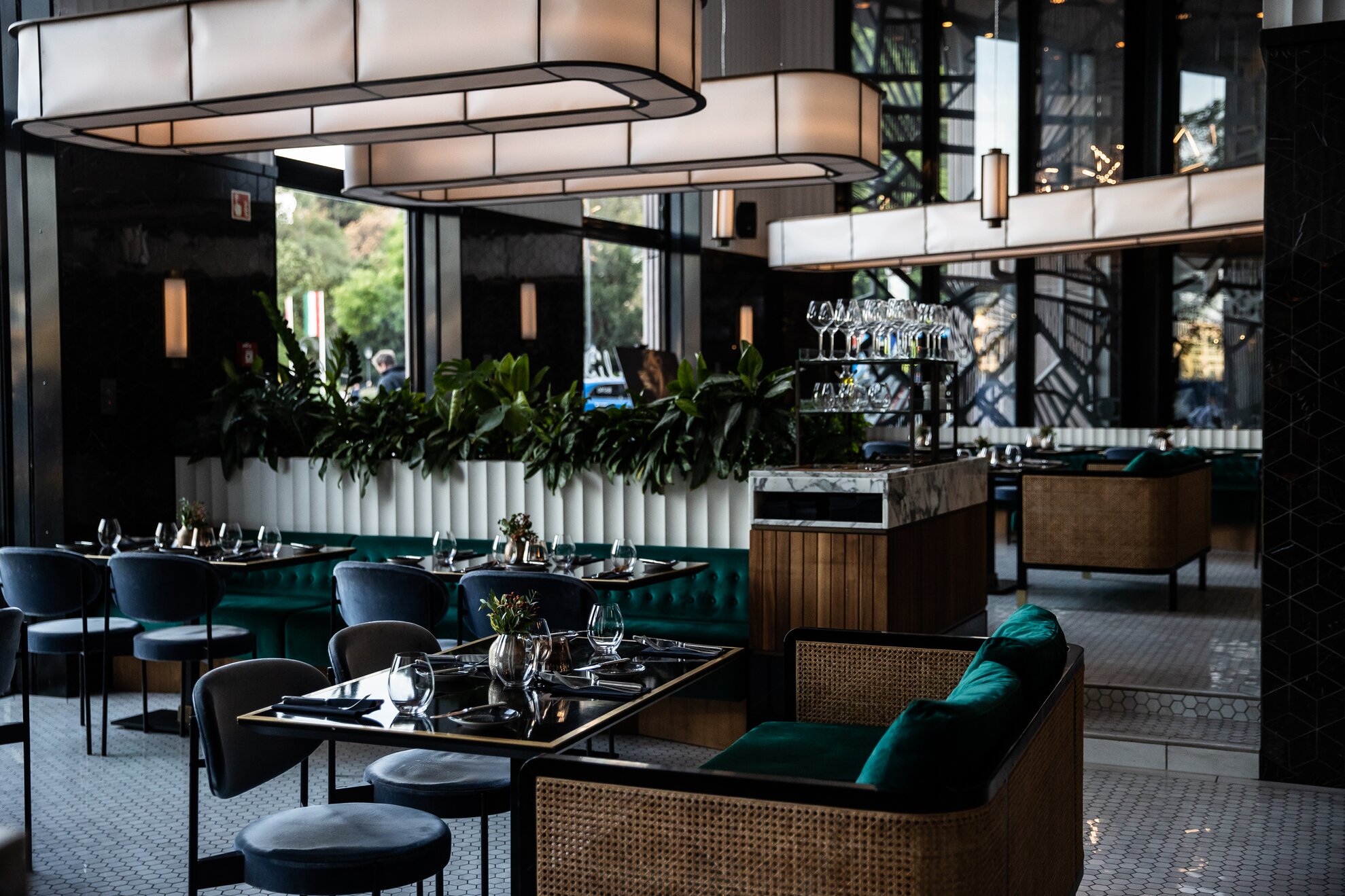
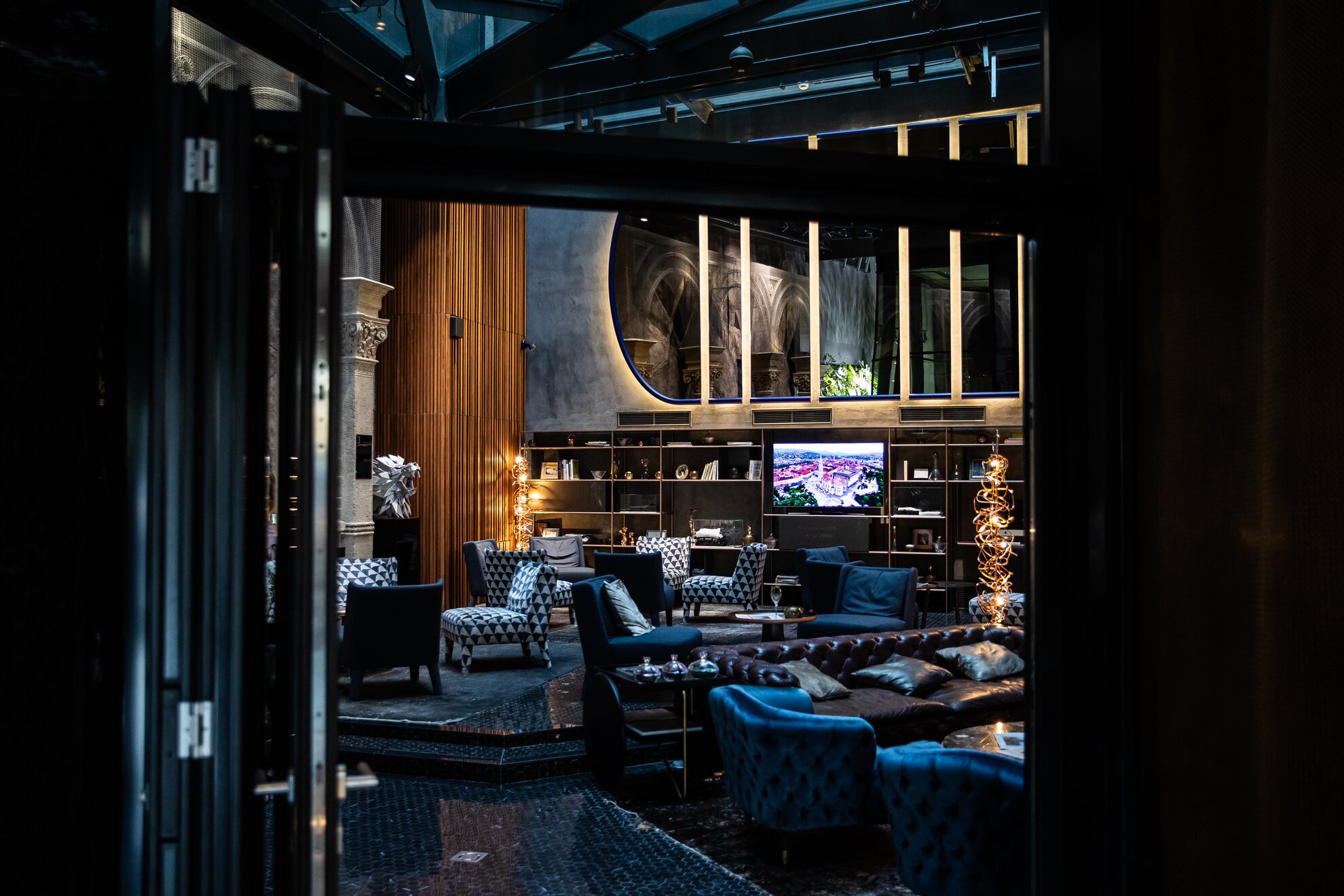
Hotel Clark Budapest is based on a concept by Anthony Gall, an Ybl Prize-winning Australian architect with a strong connection to Hungary, and is enriched by the unique interior design ideas of another architect, Ákos Bara. Built between 2016 and 2018, the hotel is both modest and extravagant, discreet and elegant. From the outside, the dark colours of the building may look a little grim, but once you enter, the feeling of unease – if you had any – is completely dispelled, because what welcomes you inside is anything but grim, but rather inviting, as the lobby is more like a cosy library room. An important element of this is the arcade-like decoration behind the reception desk, which includes four original Corinthian columns and a marble railing, which were part of the famous corner building that once stood on the site of the hotel.
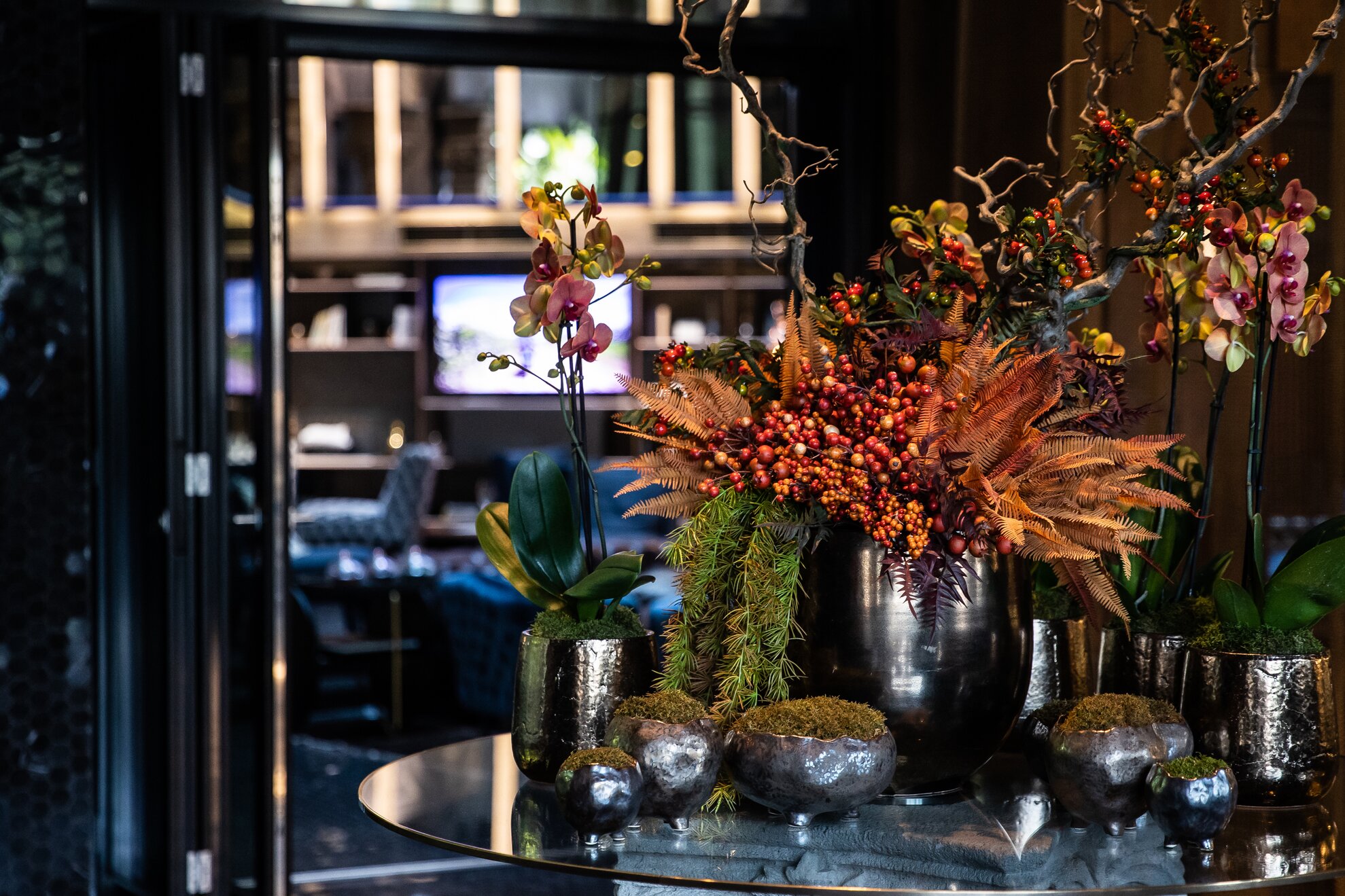
Ybl himself designed before the Ybl Prize-winning architect
The site originally housed the headquarters of the Buda Savings Bank, built between 1860 and 1862, designed by Miklós Ybl. The building also accommodated tenement apartments, and at the bottom was the Lánchíd Café, opened in 1864, which was a very important part of the city's cultural and social life for a long time, a place frequented by politicians and artists. On sunnier days, a terrace area was separated from the pavement in front of the building, known as the Ellipse. The café's first phase lasted until 1912, when it closed for 15 years, reopening in 1927. This was the second phase, marked by Nyugat (‘West’), as the magazine held its weekly meetings here, since the Lánchíd was a favourite place for Mihály Babits, Zsigmond Móricz, Dezső Kosztolányi, Milán Füst, Frigyes Karinthy and Lőrinc Szabó.
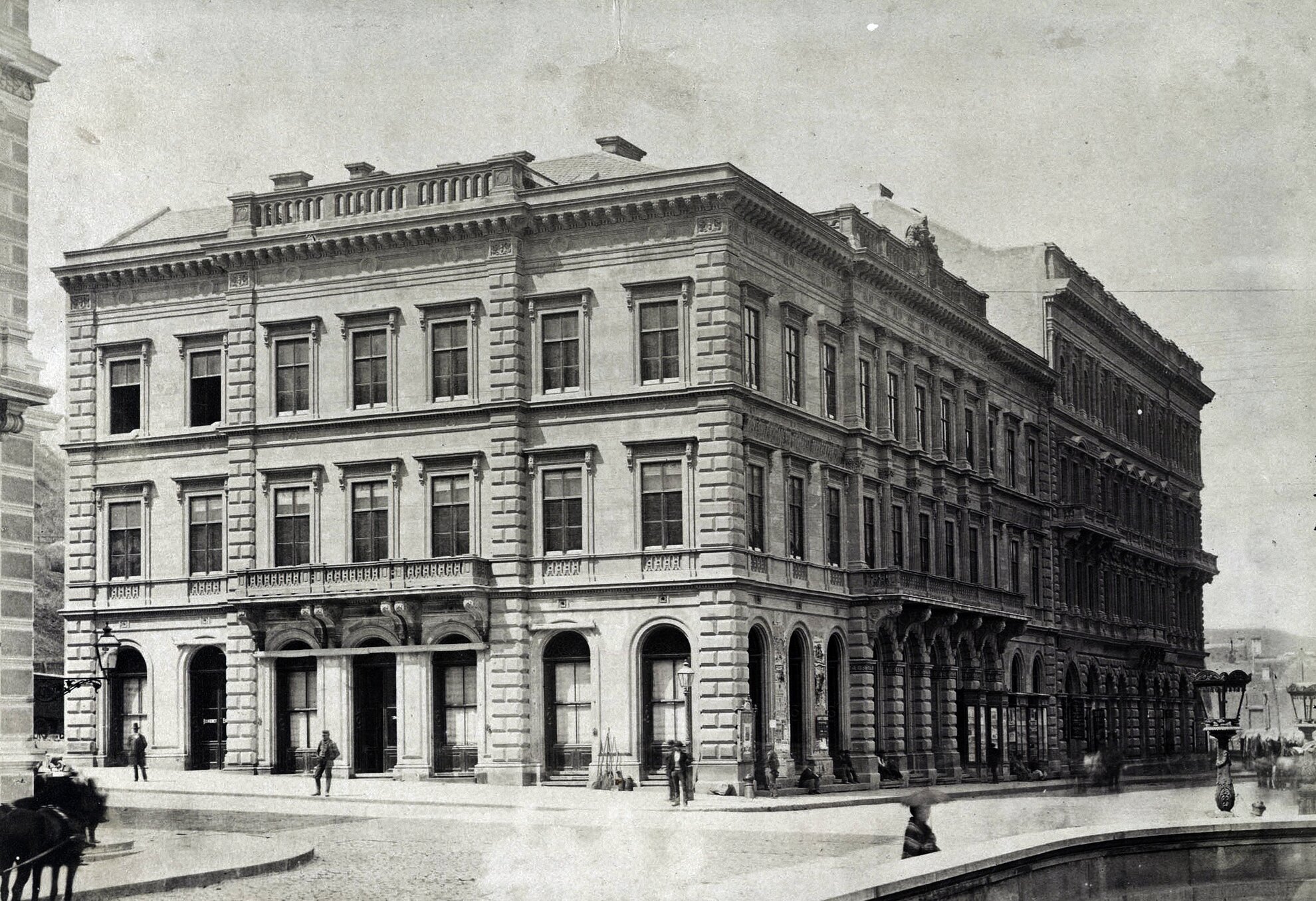
The carved limestone Neo-Renaissance building was allegedly a beautiful sight that was admire by many, not just from the city. The Tuscan-style foyer had red marble stairs leading up to the two floors. The inner courtyard was reminiscent of a Cinquecento palace, with a series of arcades of slender columns surrounding the floors. Unfortunately, the building's facade was bombarded during World War II and was completely destroyed, making it almost impossible to rebuild, so it was eventually demolished.
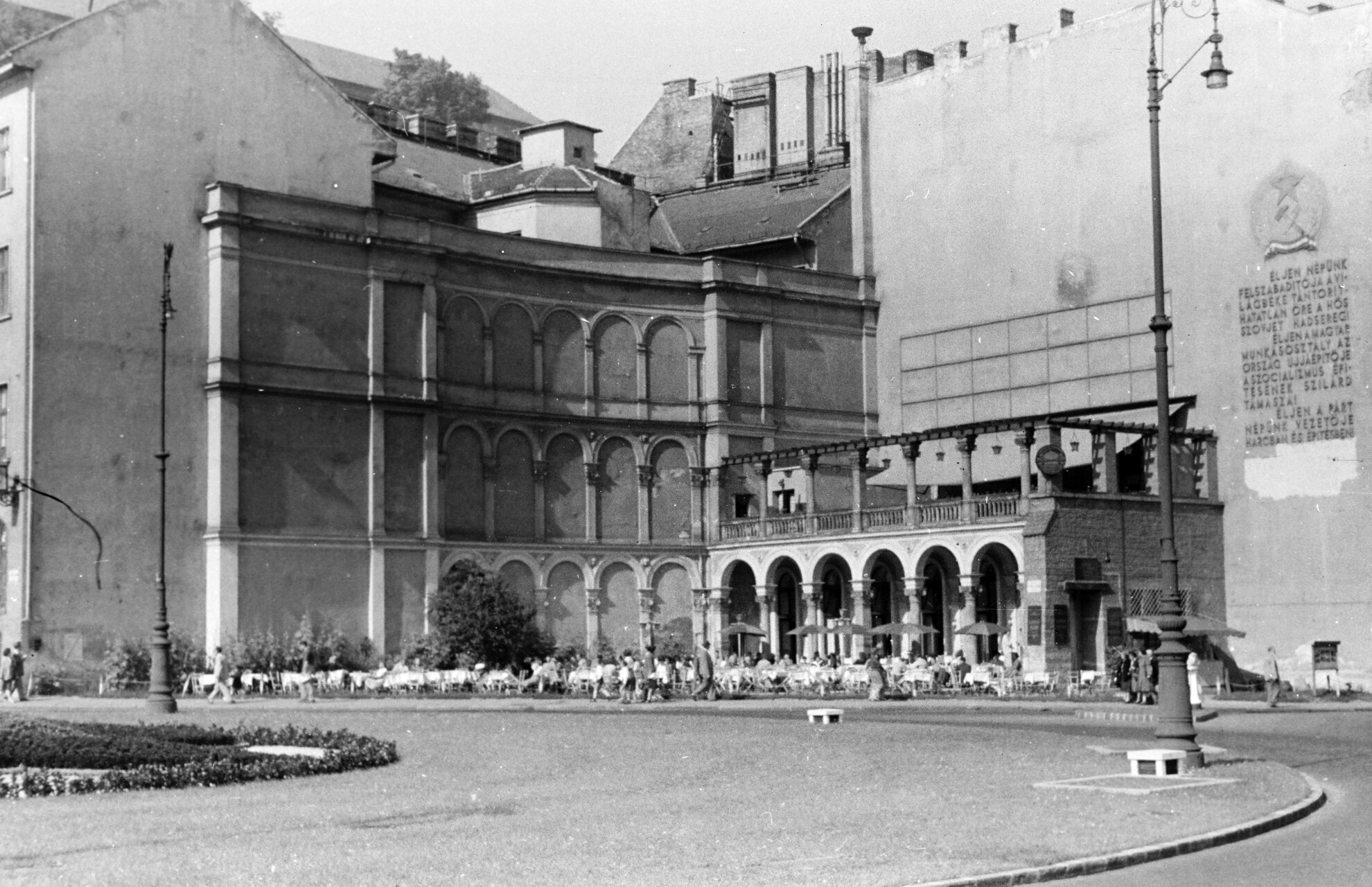
A silver lining is that under the rubble, the arcade of the inner courtyard and the ground floor of the north wing have remained almost intact. The partially restored hall was the site of the opening of the Lánchíd Bar, the city's first ruin pub, which closed in 1990, but until then it was a very popular spot with its large triangular terrace in front of it. The tiny remnant of the building was eventually turned into a café because it remained aesthetically pleasing even in its wrecked state. Only the bare firewalls and open circular corridors of the neighbouring house spoilt the overall appearance, but one could get used to that.
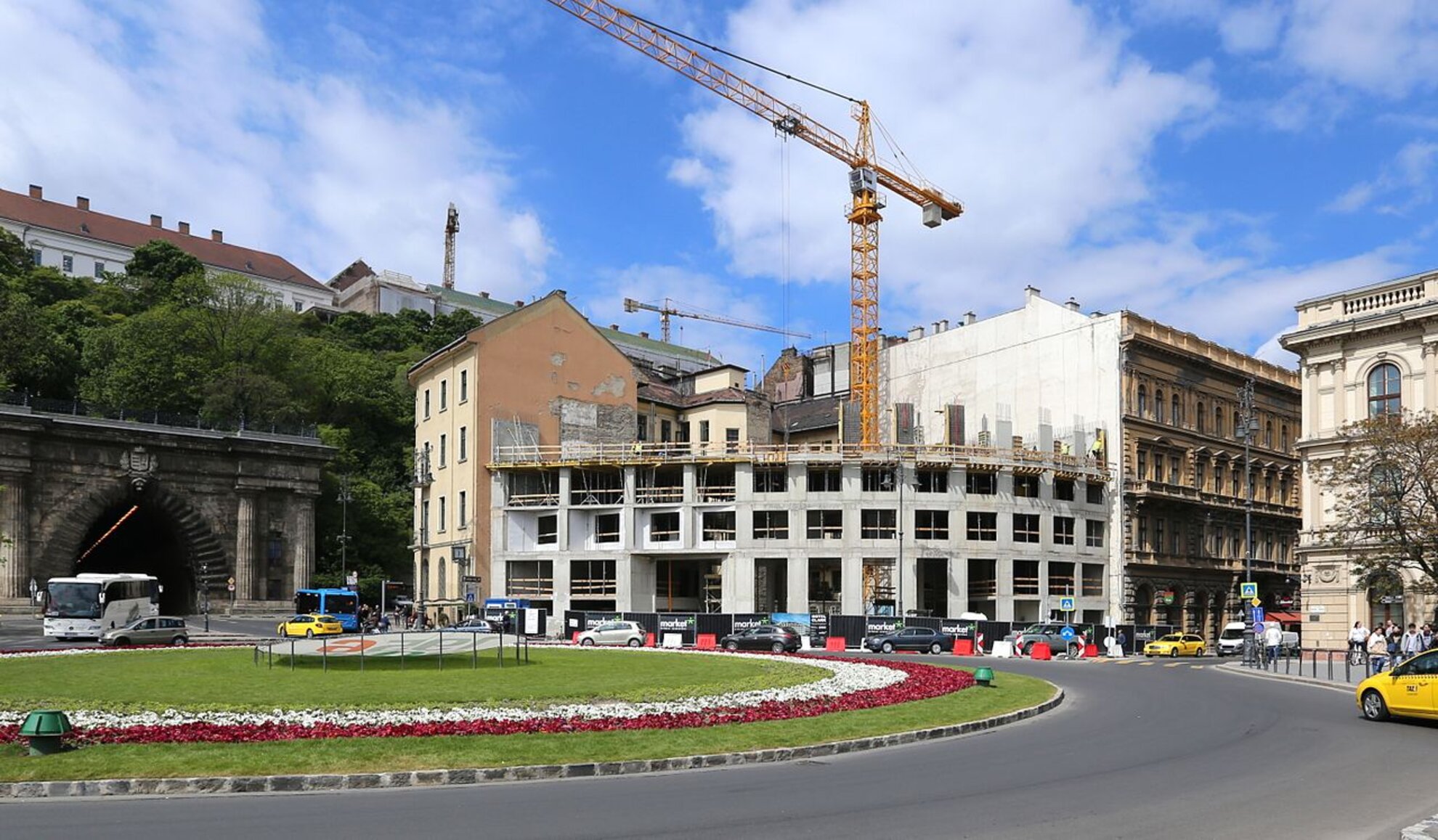
Room by room
In the Hotel Clark Budapest, 79 rooms await guests in 7 different categories, and the main difference between the rooms is not their size, but the floor they are on and what they look out onto. Some rooms overlook the inner courtyard while others have a view of the Chain Bridge and the Danube and/or the Castle, Gellért Hill and Gellért Square.
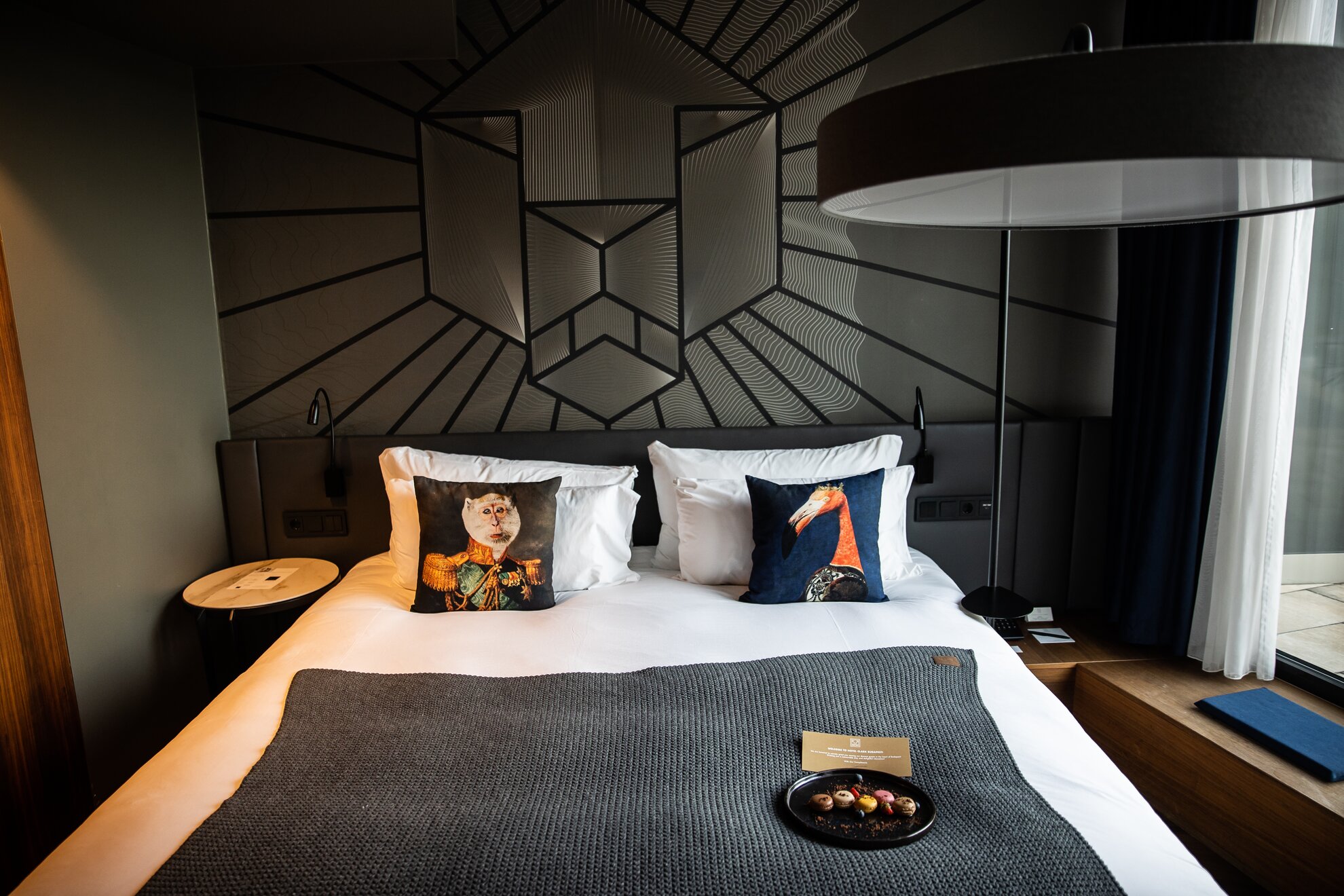
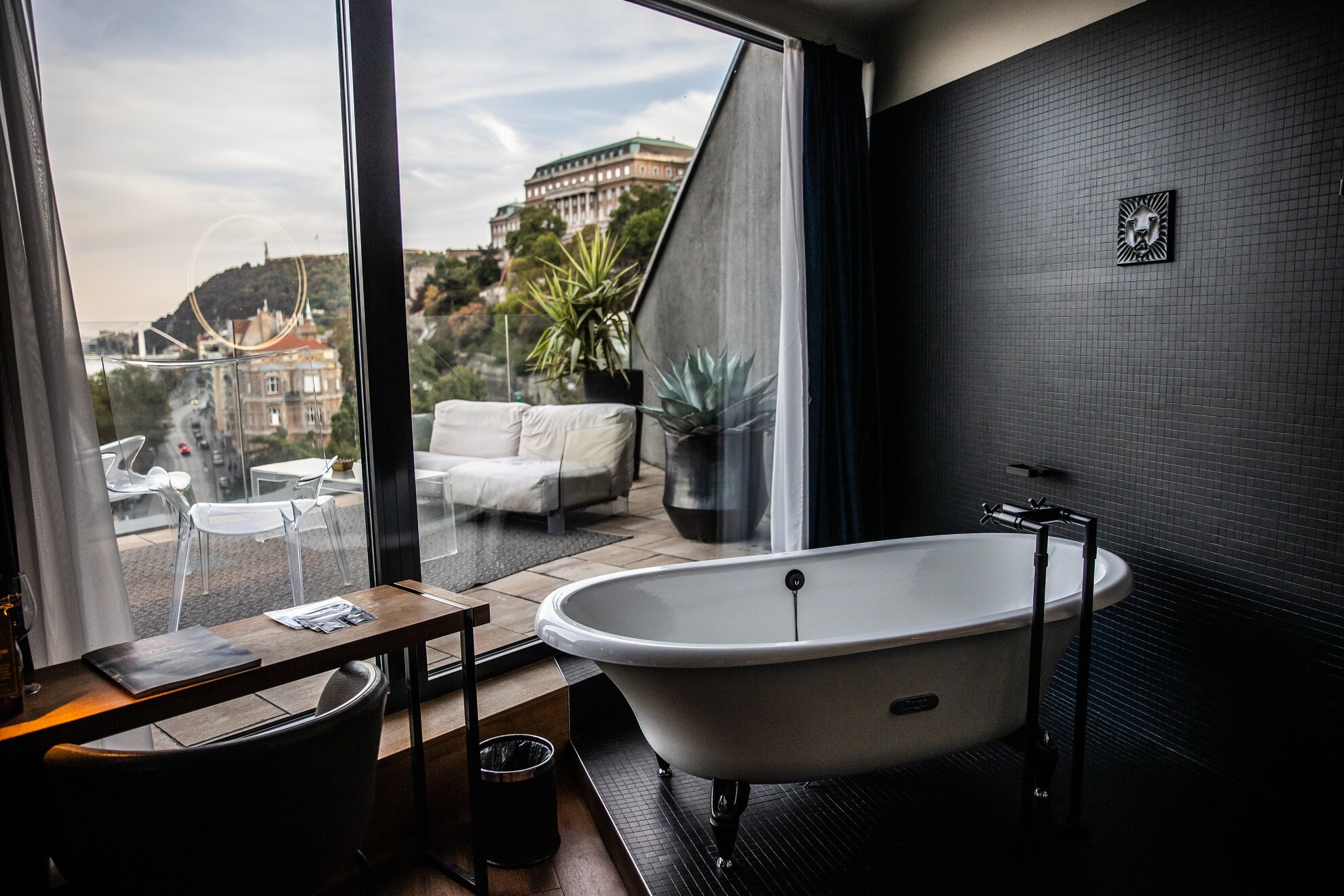
The top rooms on the 7th floor also have a large terrace. The view, or rather the panorama from any floor is stunning, and when you first enter the room, you'll definitely be drawn to the window, which is hard to escape from for to take a look at the room itself. I should note here that the hotel also has a separate room for guests with limited mobility.
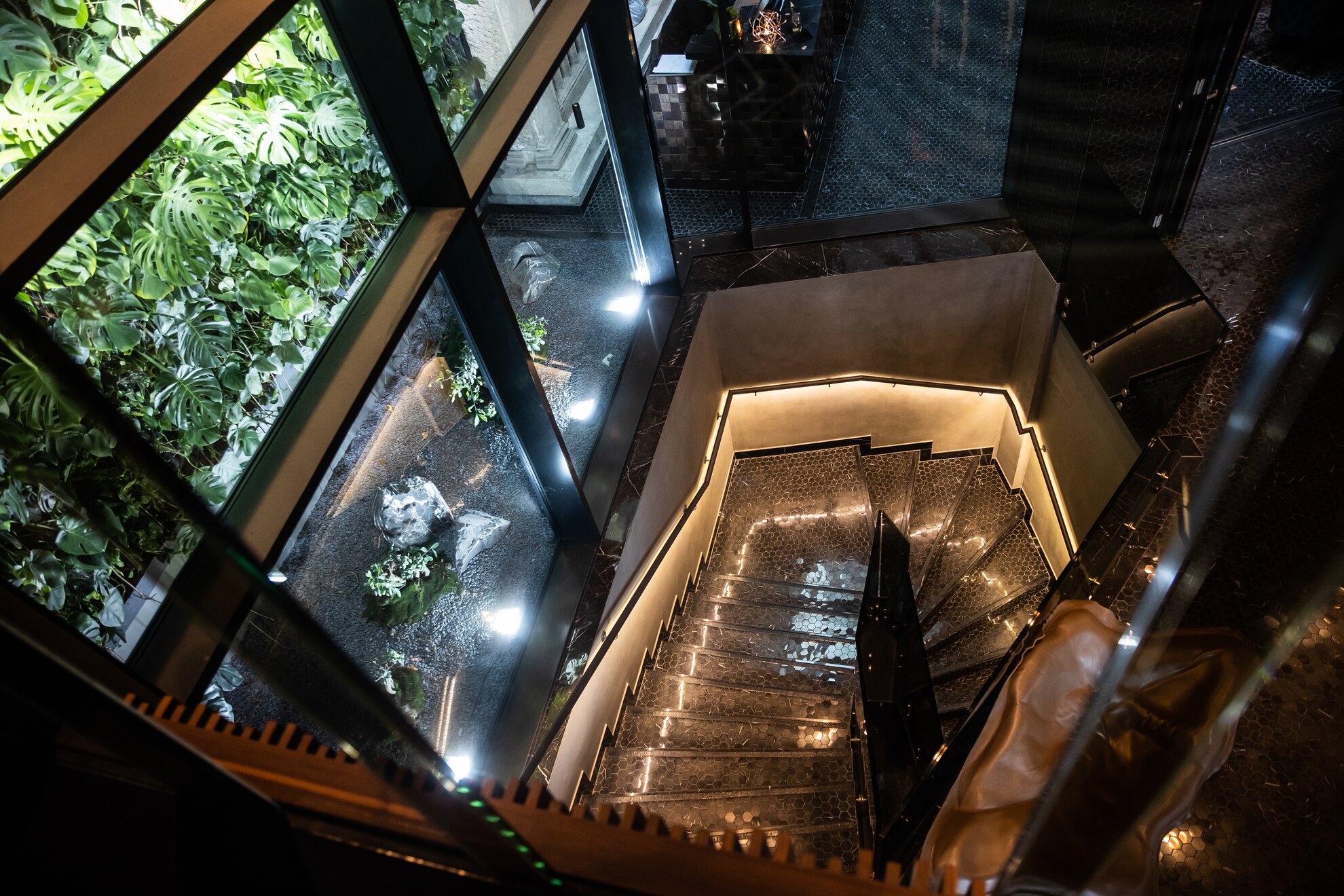
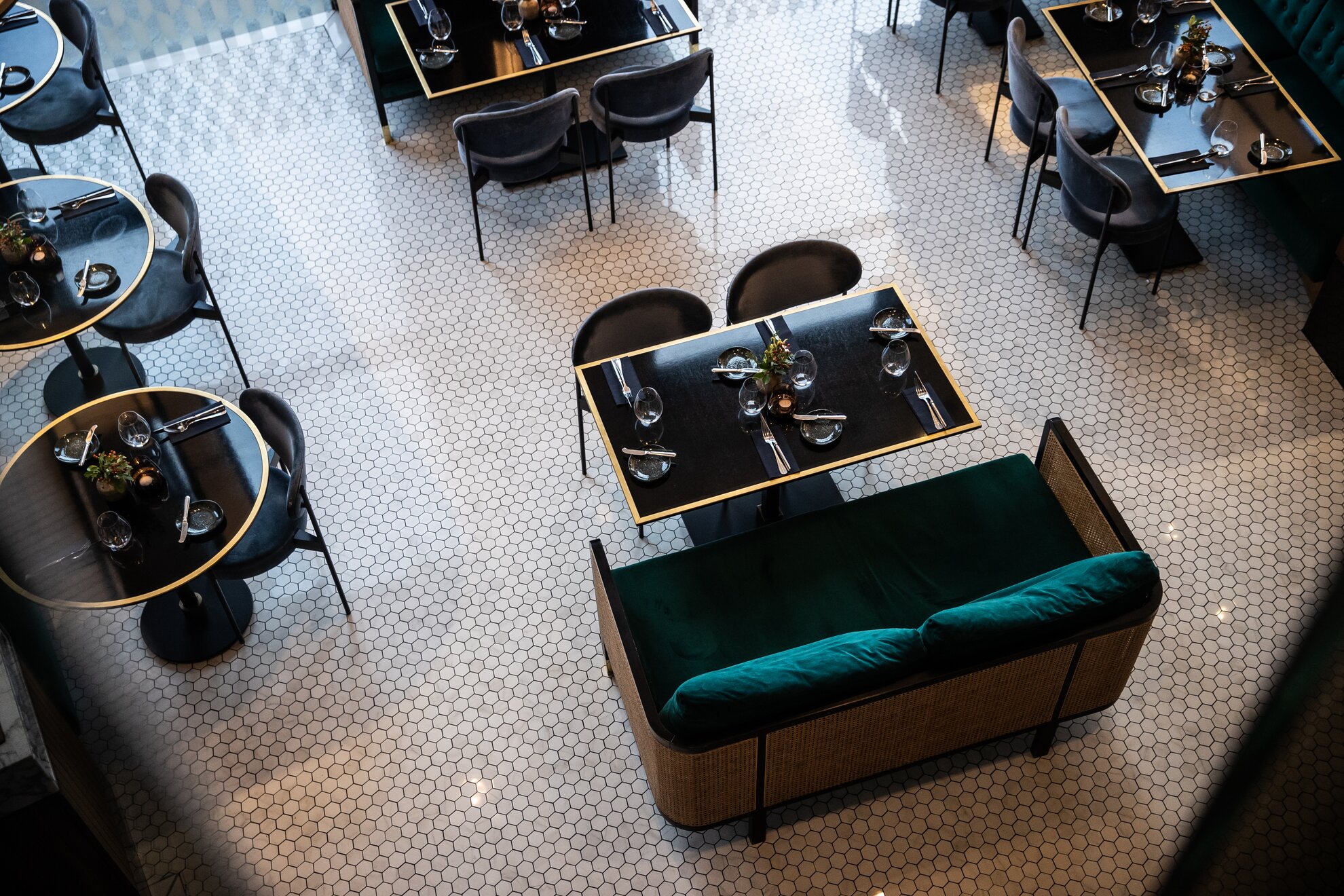
It is mainly for people travelling alone or in couples, the Clark is not particularly family or child-friendly. They don't really accept guests under the age of 14. Although the Chain Bridge is currently being renovated, everything else that a tourist or traveller might want to see in Budapest is in close proximity: the city centre, the Castle District, the Várkert Bazár and both banks of the Danube.
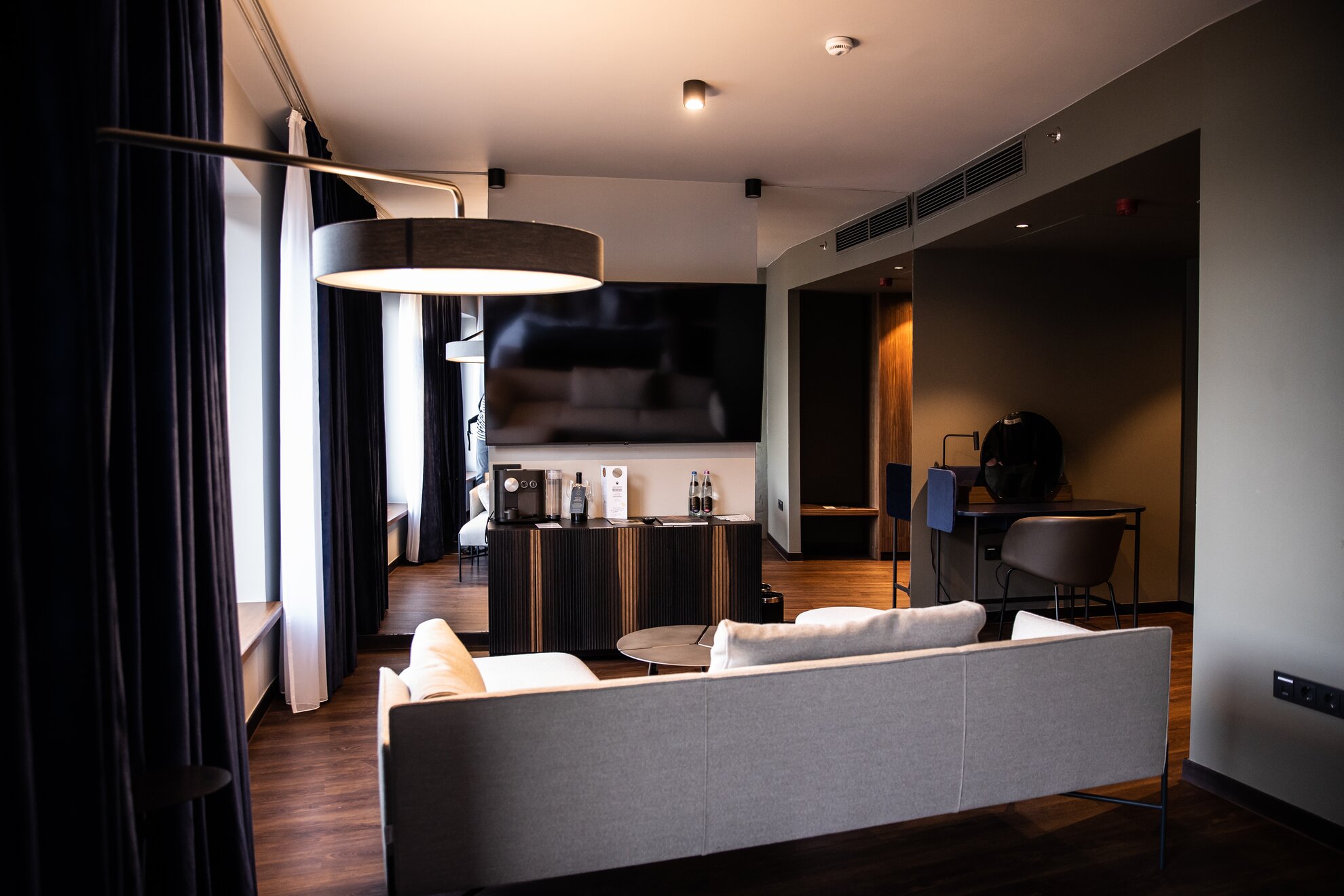
In addition, there are some really nice places nearby (e.g. the Lánchíd Pub, Pater Marcus Belgian Abbey Pub and Restaurant, and the Macskakő) if the Leo Rooftop Bar on the 8th floor and Leo Bistro on the ground floor of the hotel aren't enough. But I promise you they will be – while it's worth exploring the surrounding area –, especially as the view from the rooftop bar is simply indescribable, and I haven't even mentioned the food and drink yet.
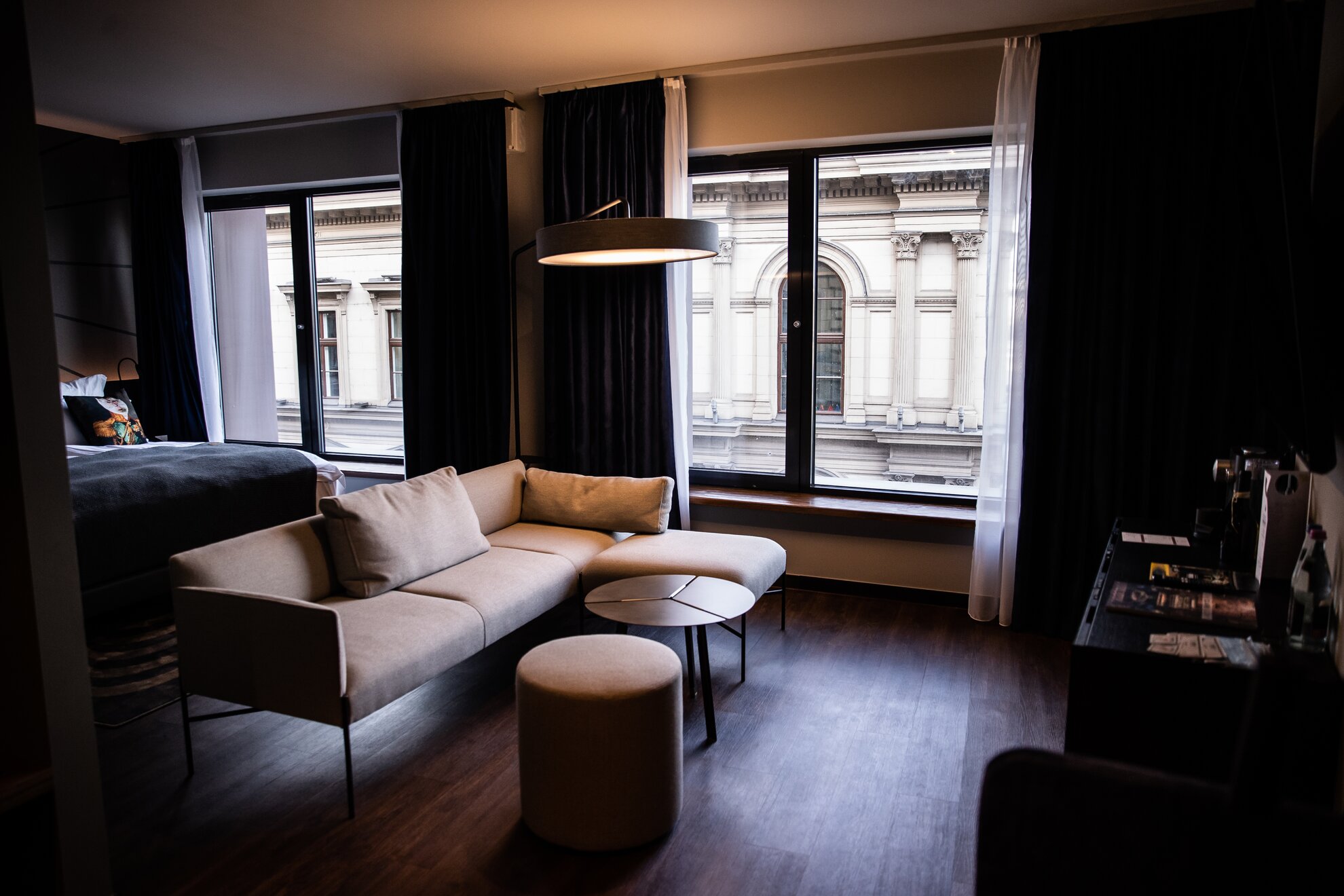
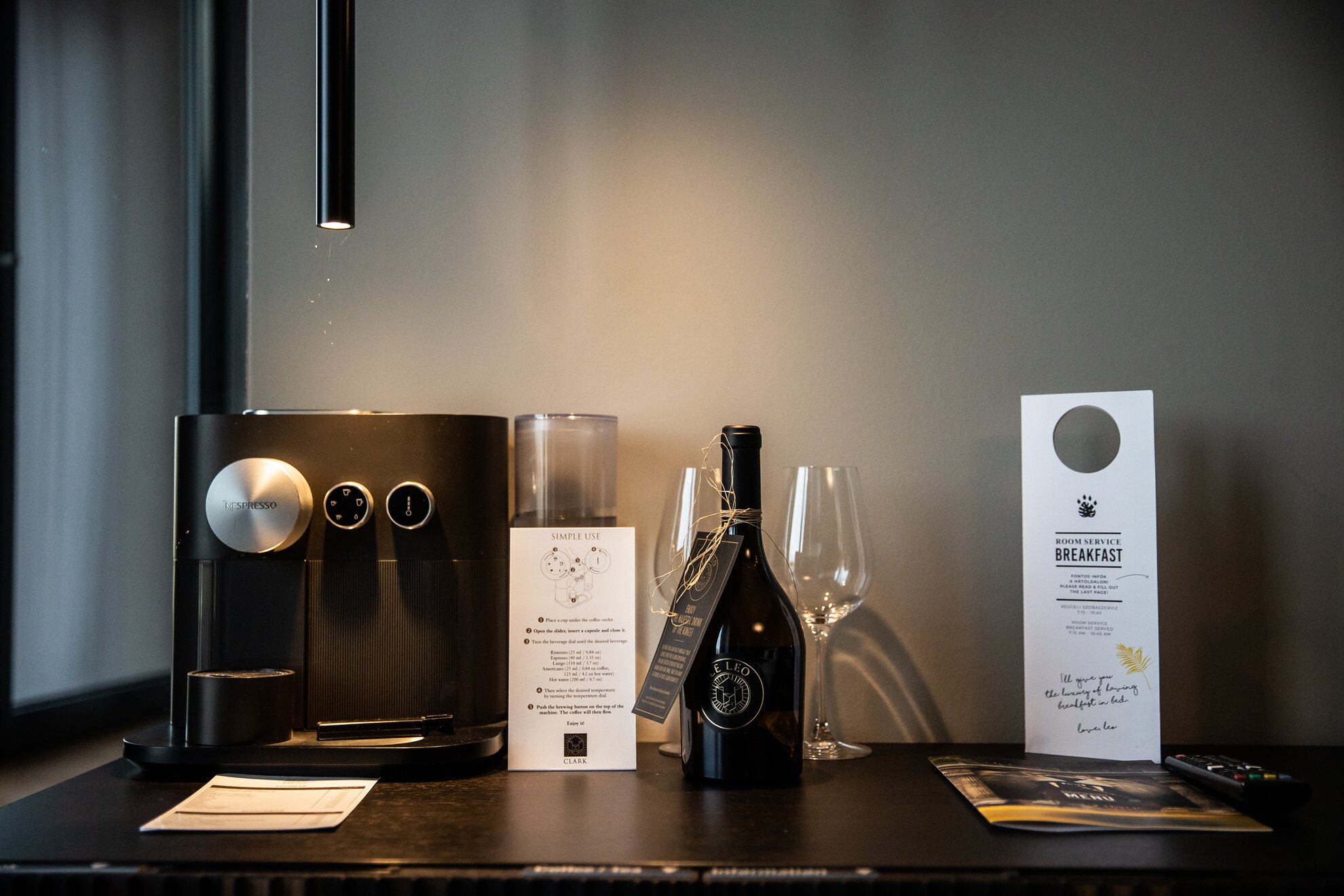
An important symbol of the Hotel Clark is the lion head associated with the Chain Bridge,
a motif that runs throughout the building, from the entrance to the lion head wallpaper, but even the pattern of the carpeting in the corridors echoes the mane of the King of Beasts. In total, there are 1,650 lion heads in the hotel. They are on the wall next to the door of every room and above the beds.
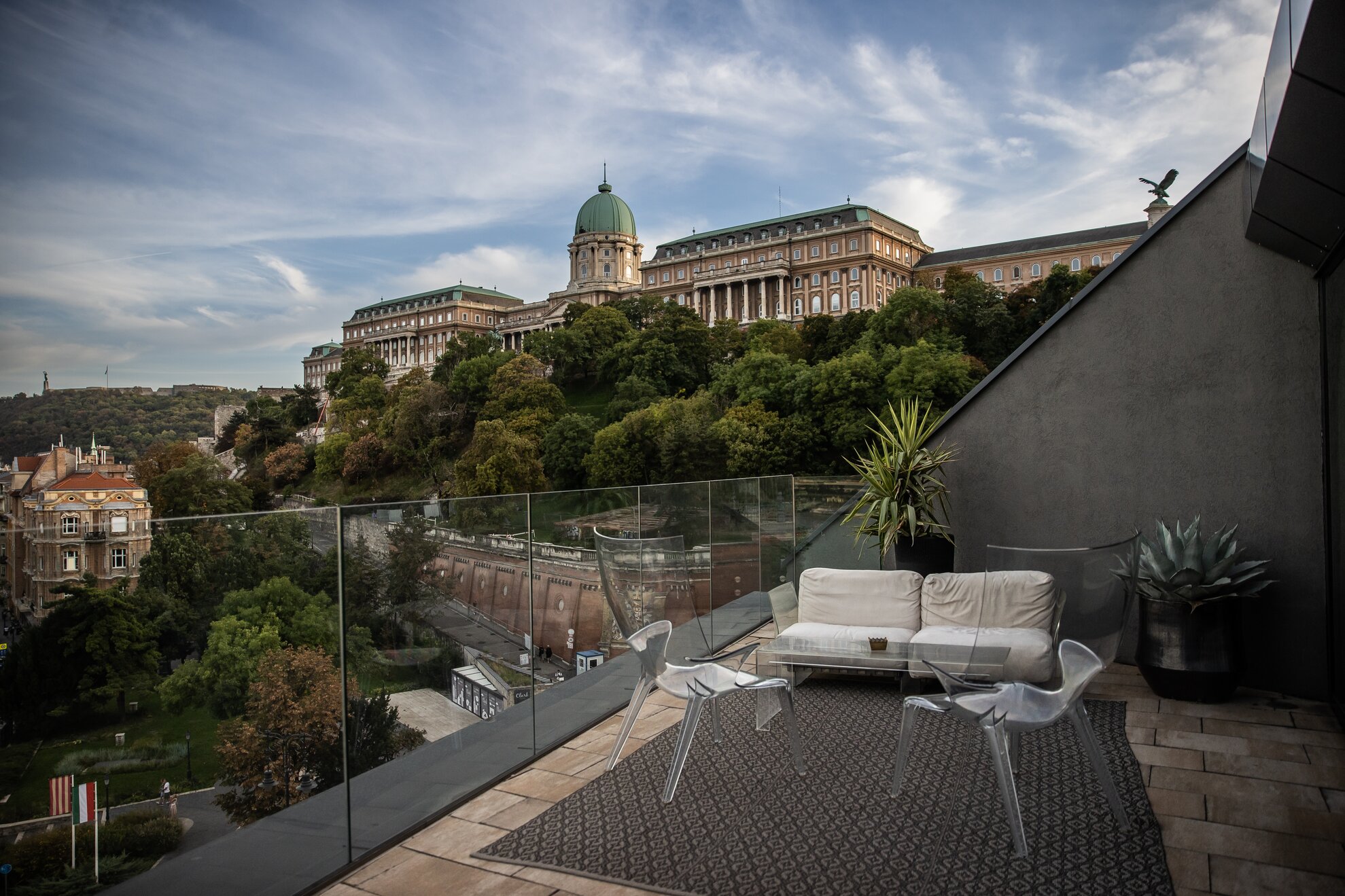
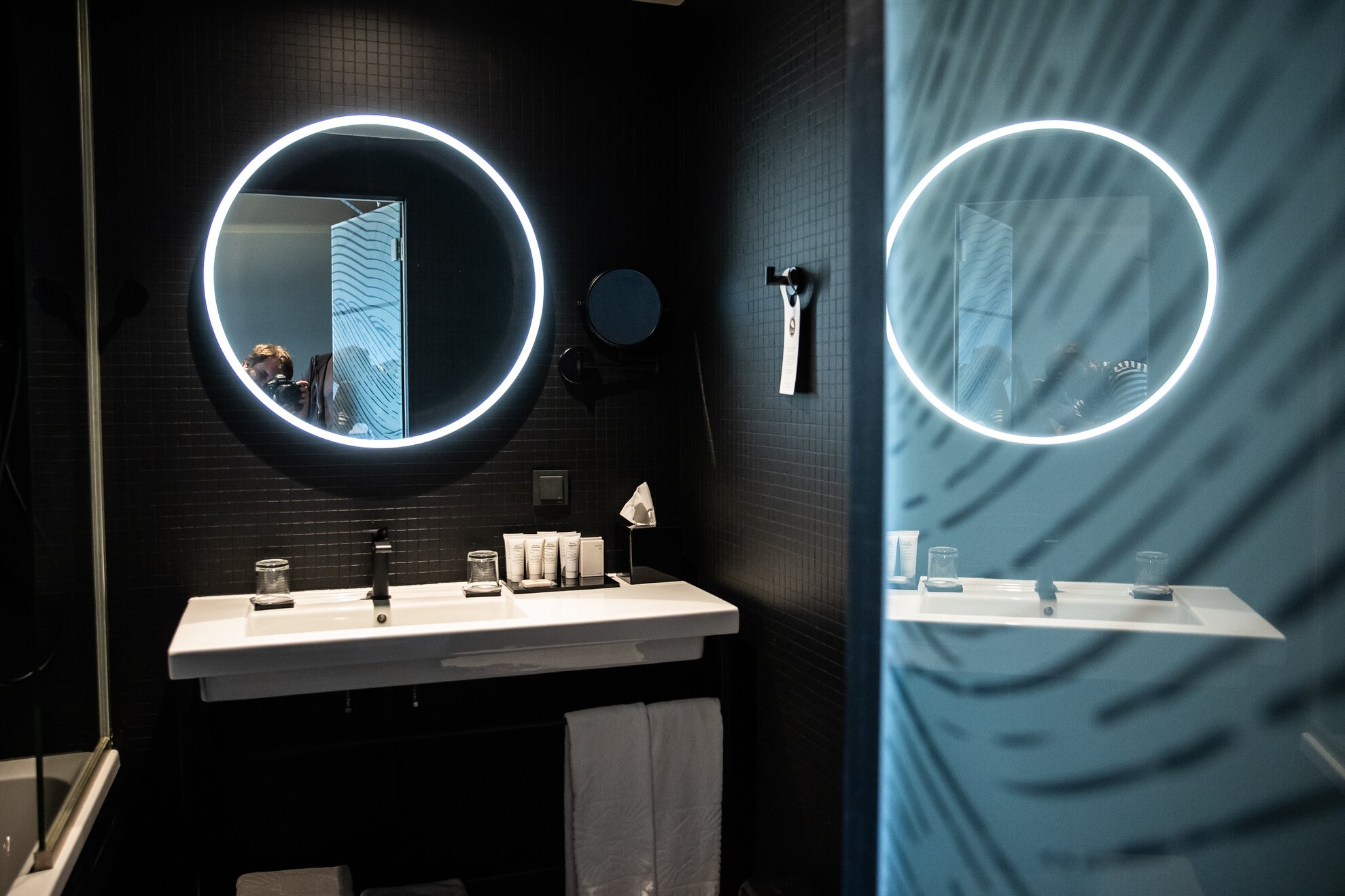
When guests occupy their rooms, they are greeted with a few thoughtful welcome gifts: a box of truffles, a bowl of macarons and a bottle of wine. The price of each room includes mineral water, coffee and of course a coffee machine as standard equipment, just like all the cleaning supplies, from shower gel to body lotion and hair conditioner. Unlike most hotel rooms, these rooms are not at all distant but have a cosy atmosphere, so you won't mind it if, say, the weather is really bad and you can't go out all day. The bed is comfortable, as is the sofa, all the chairs and armchairs and any other seating you can get on. There's Wi-Fi, there's a TV, what more could you ask for?
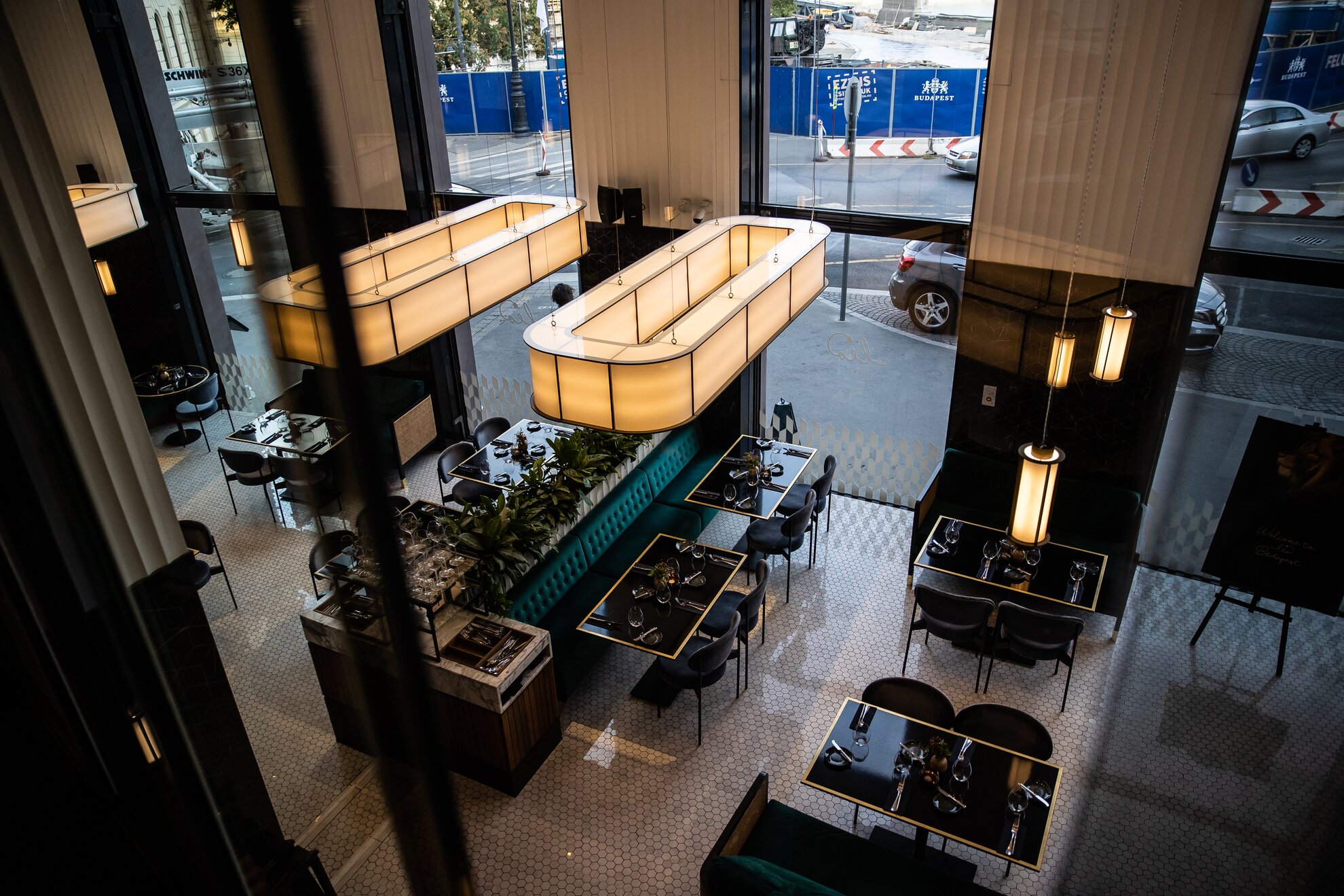
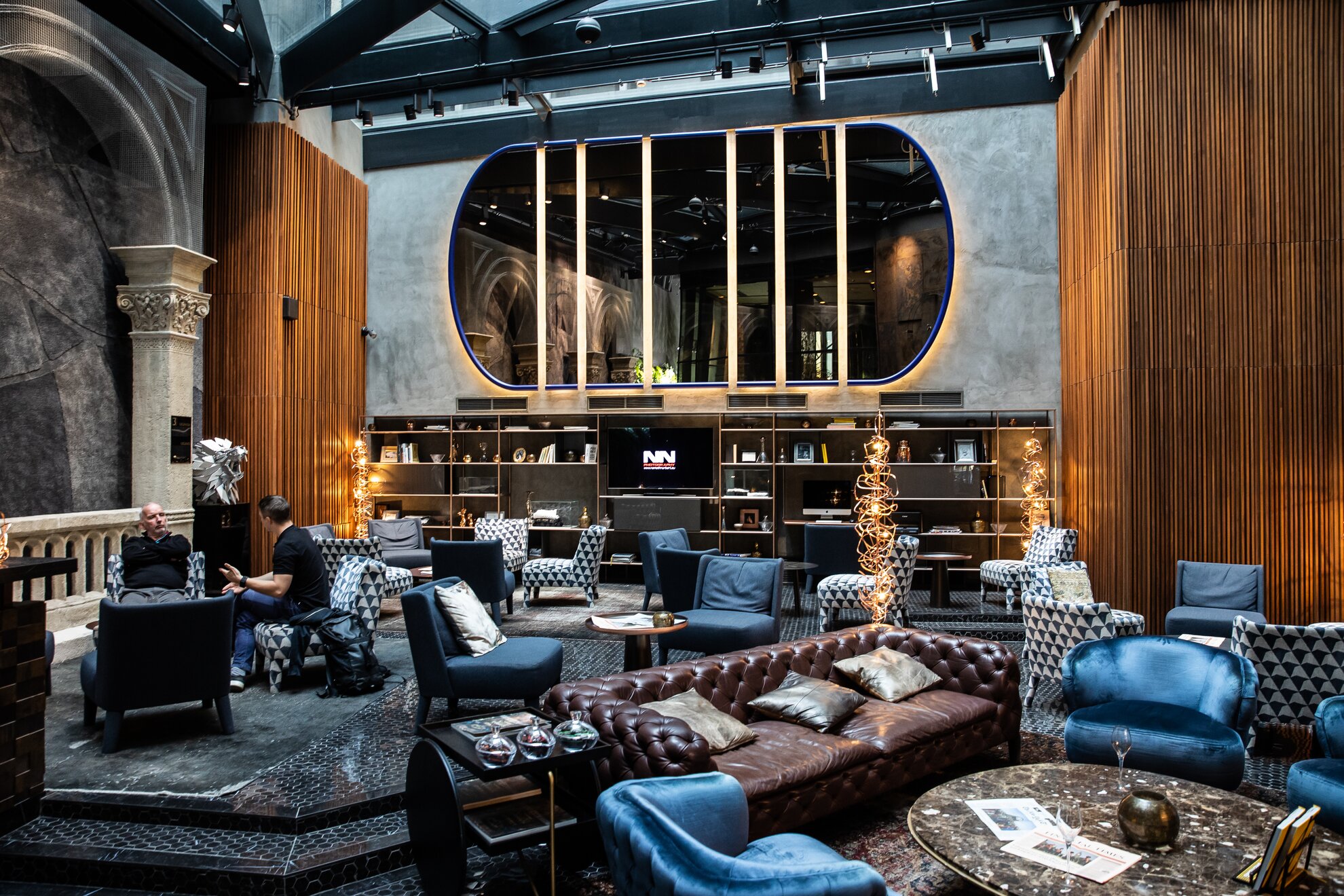
For a boutique hotel, it's important that the interior and all the furnishings designed around a unique concept should please the guests, otherwise they won't feel welcome. At the Clark, dark colours dominate to compensate for the brightness of the rooms due to the huge windows, and the curvy upstairs corridors are semi-lit, giving the place a certain comforting, mystical feel.
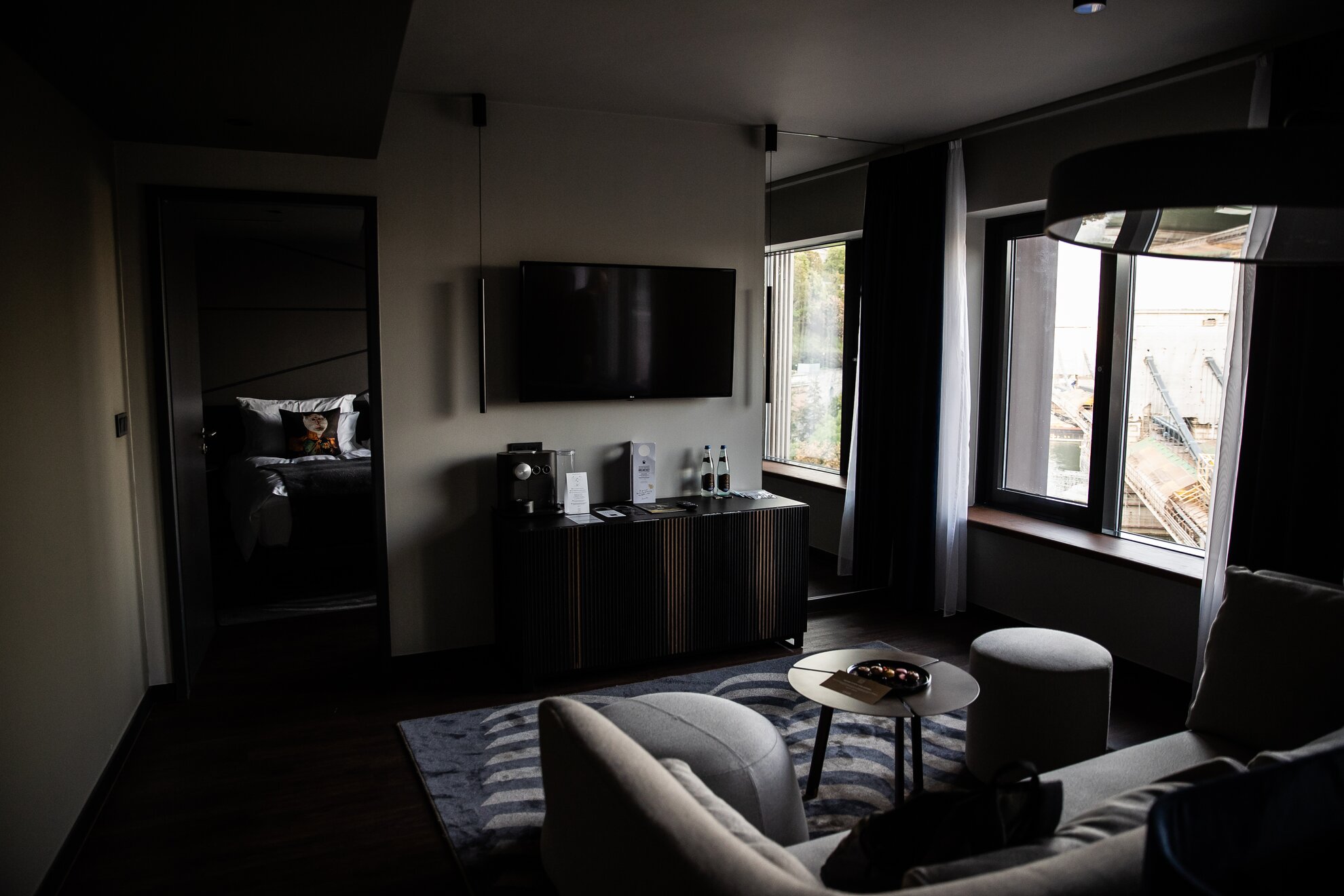
The hotel is characterised by a clean (Scandinavian) minimalism, occasionally interrupted or even complemented by a popular retro element from the 1960s and 1970s: the ribbed wood panelling that partially covers the walls. The hotel also has small conference rooms and, on the first floor, a 24/7 sauna and gym at the end of a suspended corridor, where you can work out while admiring the Danube and the Chain Bridge – now under renovation, of course.
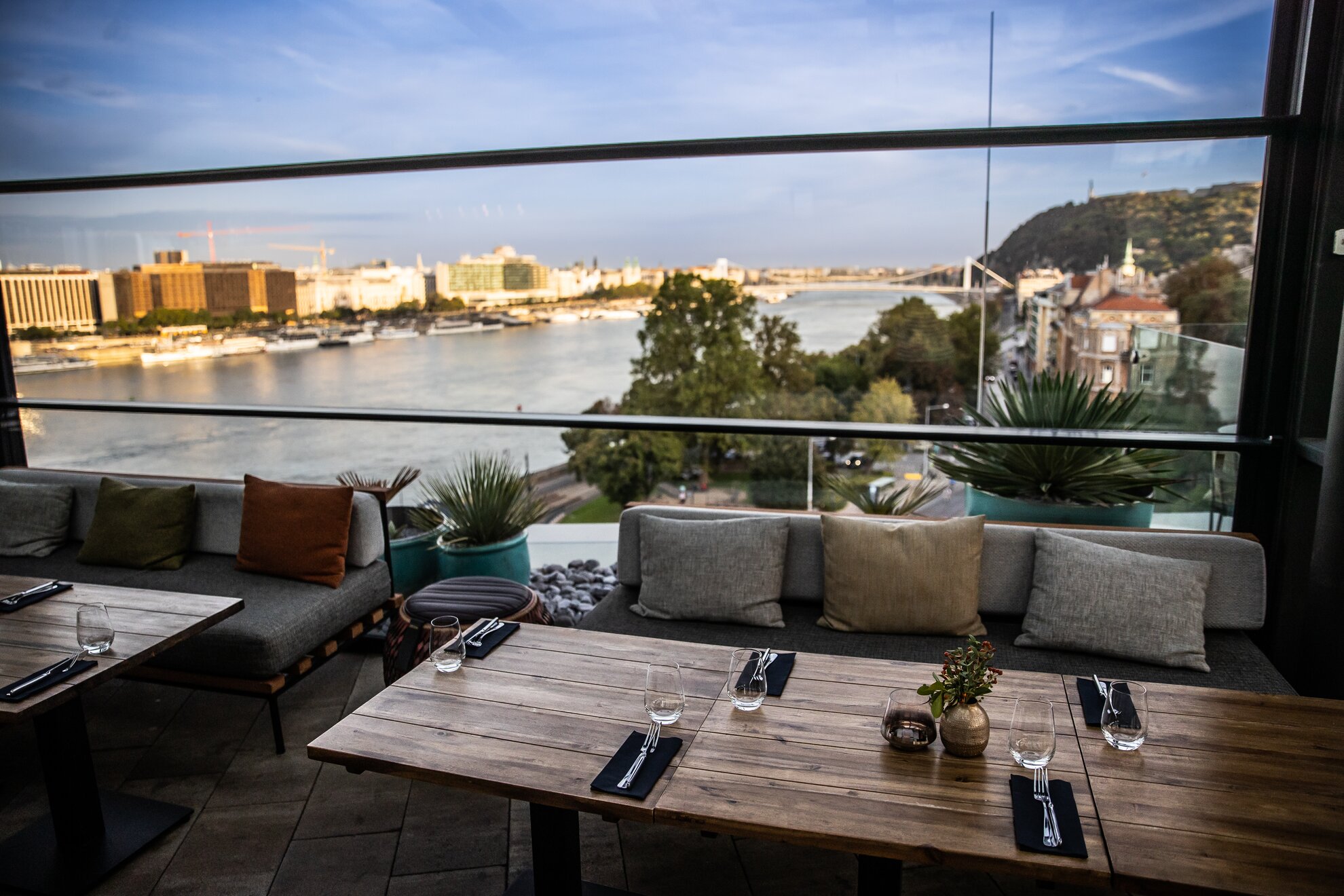
The hotel is not only elegant and welcoming – not least because of its very friendly staff, who can genuinely smile even at night –, but also radiates a kind of peculiar discretion. Perhaps it's the homeliness, but you feel you can trust the hotel and its staff, who are always at your disposal. Moving in, you get a feeling that the Clark is not a hotel, but a butler turned into a hotel, for whom nothing's impossible and who will help you in any way he can. He's like Bruce Wayne's (Batman's) butler, the ever-reliable and thoughtful Alfred Pennyworth.

